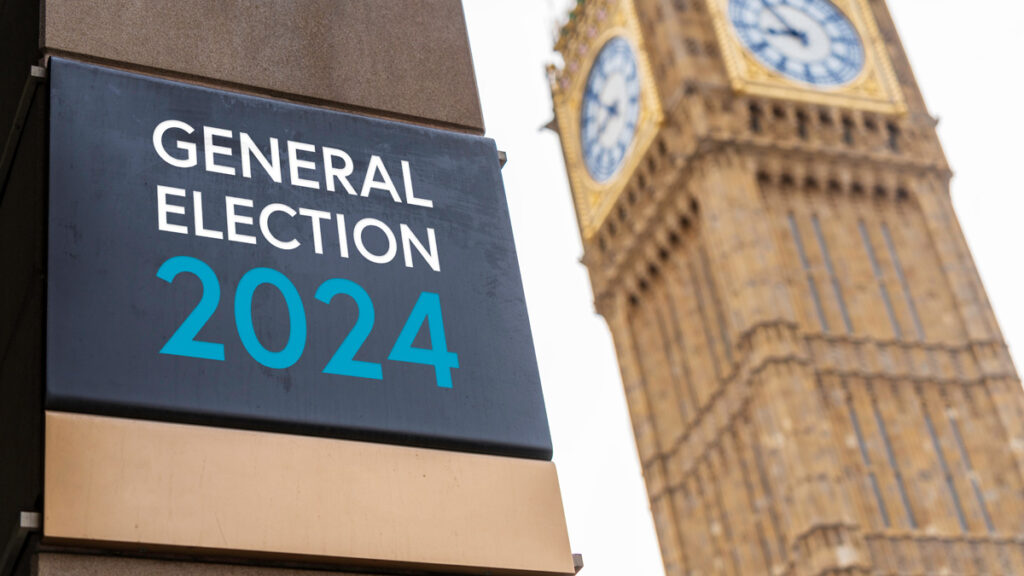Britain, it’s time to make some tough decisions
When decision-makers stop making decisions, they're done. As the general election approaches, Britain must make the tough choices, not defer them

Let’s swap places for a moment: you propose the argument and I will weigh its merits. “It’s time for Britain to decide what kind of country it wants to be…”
And I’m stopping you right there. Because the presumption that countries “make decisions” is problematic.
Who do you mean by Britain? Shorthand for our political leaders or the political class from which they emerge? The state or the body of informed opinion that shapes debate? Or the people, which only speak with a mandate and in unison at elections? Or all the above, as they interact and influence each other? And – critically – who’s driving who: the leaders or the led?
The historian in me is sceptical about turning a country into a single mind. When I was studying diplomatic history, we wrote essays that treated nations states as individual people: Austria was trying this, Prussia was guarding that, France was worried about both.
I uneasily learnt the habit, but without banishing the heretical thought: what is France, really? Wasn’t it all much messier than that? Aren’t ideas, people and influence infinitely complex? And turning history into chess misrepresents the whole game. Thirty years on, I’ve forgotten the history but remembered my scepticism. (A rule of thumb: intuitive intellectual unease means you’re getting closer to something useful.)
But despite all those caveats, there are moments when the question survives interrogation and there’s no avoiding a simplistic approach: what are we (the country) going to decide? What’s the way forward? What’s the plan? And even though I’m usually reluctant to frame debates in those terms, I think this is one of those moments in our national story.
The tough choices facing the British people
These conversations are usually prettied up as a question of vision, which is a selling concept. Instead, let’s toughen up the terms and frame them as decisions, which is a practical concept. Imagine ourselves as the sole decision-maker: what should we decide about the central functions of the state?
Our attitude towards the health service is becoming one of private despair misrepresented by public reverence. Everyone knows what no one is saying. And even if we hide behind the convenient position that it’s no one’s fault, it remains everyone’s problem.
And the widening gap between personal truth and political rhetoric is more dangerous than the underlying structural problems. If we implicitly ask our politicians to lie on our behalf, we’re opening up much bigger difficulties than a faltering healthcare system. We want more than we can pay for and the mechanism for half-delivering a compromise position is on its knees.
We think we’re great at education, but we know deep down that we’re being rumbled. With true British cunning, commercialism and sleight of hand, we took a strong brand – the heady mix of dreamy quadrangles and genuine intellectual excellence – and industrialised the hell out of it. Everyone knows that you can scale a lot of things, but you can’t scale tea with EM Forster overlooking King’s College, Cambridge.
Watching education disappear down the rabbit hole of defining learning outcomes reveals its true insecurity: the determination to define something is born of the fear that it’s not really there at all.
In humanities, for example, the daunting truth is that the best education is intelligent conversation. But what will you learn from an intelligent conversation in nine months’ time? If you can answer that, you don’t understand education.
Higher education has allowed itself to turn the magic of inspiring young people into a maze of form-filling, designed on the convenient assumption that the small print captures what students are paying for. We are at the stage of asking how many angels can dance on the head of a pin. Everyone knows this, but how many angels did we settle on (because this is a conversation where someone is taking minutes)?
Decision time: are we spending our time on real education or on proving that we are educating?
National defence: our armed forces now face the reverse of the university problem, they’ve retained the grandeur, but without enough people. The world is more dangerously poised than at any stage since the Cuban missile crisis, and we have an under-funded and under-staffed army. How far do you dare to shuffle that one down your list of decisions?
And whose armed forces do you mean, because we’ve a decision to make about the union, too. In happy times, who cares about identity? But when hard times roll round, we wonder who were really are: British, English, both equally, unsure? I don’t know, either. Are we a United Kingdom in anything but name? A united Ireland is imminent and, possibly, a divorced England and Scotland (though there might be a surprise about who files for divorce first).
Identity, security, education, health – and we’re only just getting started. Meanwhile, the conversation around Westminster is something to do with the age at which you can vape and flying people to Rwanda. It’s a displacement activity.
The problem with deferring a decision
In my bounded and narrow role as chief selector of England cricket, I always tried to avoid deferring decisions that ought to be made now. That’s because when I was on the other side of the fence as a player, I had contempt for decision-makers who liked things to be obvious before they did anything. They wanted public opinion to make the decision for them, becoming simply the lowly administrator of decisions that originated from a kind of mob.
Leaving things to become obvious just to avoid agency, responsibility and personal risk is straight-forward cowardice. But isn’t that what Britain is doing? Too scared to reform the NHS, too timid to rethink education, too traditional to reset how we defend our nation, waiting (if you’re English) for your estranged spouse to leave you first.
I’ve noticed only one thing about all decision-makers, the critical trait that transfers across every sector. When they stop making any decisions, they’re done. In the case of national decisions, there is no us and them. We’re all in this.
Ed Smith is director of the Institute of Sports Humanities and the author of Making Decisions



